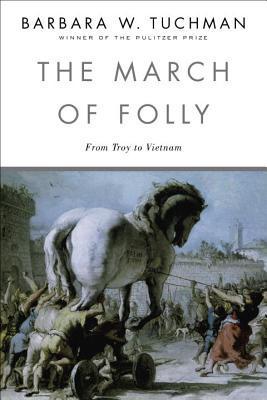
A Distant Mirror: The Calamitous 14th Century
Book Description
The 14th century roared with chaos and upheaval, a relentless storm of plague, war, and social upheaval reshaping the very fabric of society. Witness the relentless battle between ambition and despair as kingdoms crumble under the weight of catastrophic events. Tuchman weaves a gripping tapestry of human resilience and folly, where peasants rise against their lords, and faith is tested in the shadow of death. Each turning page reveals the harrowing reality of a world on the brink. What happens when civilization teeters on the edge of oblivion, and can humanity rise anew from the ashes of its past?
Quick Book Summary
"A Distant Mirror: The Calamitous 14th Century" by Barbara W. Tuchman explores a century marked by profound crisis and transformation across medieval Europe. Using the life of French nobleman Enguerrand de Coucy as a narrative anchor, Tuchman delves into the devastation wrought by the Black Death, the Hundred Years’ War, religious schisms, and peasant revolts. Through evocative storytelling, she brings to life the fears, ambitions, and daily realities of nobles, clergy, and commoners. The book paints a vivid portrait of a civilization under immense strain, yet full of resilience and paradox. Tuchman reveals the entanglement between catastrophe and change, showing how the calamities of the fourteenth century shaped the emergence of the modern world.
Summary of Key Ideas
Table of Contents
Societal Upheaval in Medieval Europe
The fourteenth century was marked by extraordinary turmoil, and Tuchman weaves together the personal and the political to illuminate the widespread disruption of medieval European society. Feudal structures came under immense pressure as new social, economic, and cultural forces emerged. The nobility faced declining influence, while peasants and urban dwellers sought greater autonomy. Revolts like the Jacquerie in France and the Peasants' Revolt in England exposed the fractures beneath a rigid social order, leading to lasting changes in class dynamics and the erosion of feudal bonds.
The Impact of the Black Death
One of the era’s most transformative catastrophes was the Black Death, which swept through Europe and killed an estimated third or more of its population. The plague’s devastation extended well beyond mortality, shaking the foundations of society, labor, and the economy. Survivors found new opportunities as labor shortages shifted power from landowners to workers. The psychological impact resounded in art, religion, and daily life, deepening fatalism but also nurturing new forms of expression and inquiry.
Warfare and Political Turmoil
The age was also defined by incessant warfare—most notably the Hundred Years’ War between England and France. Tuchman describes the destructive effects of these conflicts on both rulers and commoners. Castles fell, cities burned, and vast armies laid waste to countryside and harvests. The chaos undermined central authority, leading to political fragmentation and the rise of mercenary bands. These wars changed the nature of combat and governance, accelerating the decline of chivalry and the emergence of more modern military structures.
Faith, Religion, and the Church
Religion and the church’s influence pervade Tuchman’s account. The 14th century saw the papacy relocate to Avignon, spurring division and scandal. The Great Schism fractured Western Christendom, as rival popes vied for legitimate spiritual authority. Popular faith was often marked by extremes—pilgrimages, flagellant processions, and bursts of religious violence reveal fears and hopes in an age hungry for stability and salvation. Yet, challenges to church authority sowed seeds for future reform.
Human Resilience and Change
Despite relentless calamity, the fourteenth century also revealed deep human resilience and adaptability. Individuals and communities, battered by events beyond their control, sought meaning and survival through innovation, collective action, and changing expectations of justice and leadership. Through the life of Enguerrand de Coucy, Tuchman illustrates the paradox of a society both beset by disaster and propelled toward profound transformation. The book ultimately shows how the struggles and responses of this distant mirror set the stage for the European Renaissance and the modern era.
Download This Summary
Get a free PDF of this summary instantly — no email required.





